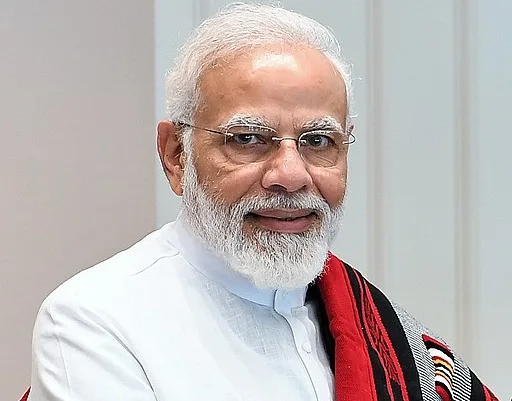Modi’s request comes after a recent election victory; supporters had adopted the suffix in response to remarks by opposition leader
Prime Minister Narendra Modi, on June 11, made a public request to his supporters, urging them to remove the “Modi Ka Parivar” (Modi’s family) suffix from their social media handles. This appeal comes in the wake of the BJP-led National Democratic Alliance’s significant victory in the recent elections, which, according to Modi, effectively conveyed the intended message.
The “Modi Ka Parivar” movement gained momentum in March when many BJP members and supporters adopted the suffix on various social media platforms. This initiative was sparked by remarks made by opposition leader Lalu Prasad Yadav, who stated that Modi had no family of his own. In response, the prime minister emphasized that the people of India constitute his family.
Embed from Getty ImagesIn a post on the microblogging platform X, PM Modi expressed gratitude towards those who had shown affection by adding “Modi Ka Parivar” to their social media profiles. He acknowledged the strength he derived from this gesture during the election campaign. With the NDA securing a majority for the third consecutive time, Modi emphasized that the mandate reflected the trust placed in his government to continue working for the nation’s progress.
Modi stated, “With the message of all of us being one family effectively conveyed, I would once again thank the people of India and request that you may now remove ‘Modi Ka Parivar’ from your social media properties.” He emphasized that while the display name may change, the bond of unity and shared commitment to India’s progress remains unbroken.
Analysis:
Political Perspective: Modi’s request to remove “Modi Ka Parivar” from social media handles reflects his strategic messaging following the electoral victory. By emphasizing unity and moving beyond personal associations, Modi aims to consolidate support and project a united front for governance.
Social Impact: The “Modi Ka Parivar” movement symbolizes the strong bond between Modi and his supporters, representing a sense of collective identity and allegiance. The request to remove the suffix may evoke mixed reactions, with some seeing it as a gesture of moving forward, while others may view it as a loss of a symbolic connection.
Psychological Aspect: The adoption of “Modi Ka Parivar” by supporters signifies a sense of belonging and personal investment in Modi’s leadership. The request to remove it may prompt individuals to reassess their digital identity and relationship with the political figure they admire.
Sociological Angle: The phenomenon of adopting political slogans or symbols on social media reflects the intersection of politics and digital culture. Modi’s request underscores the dynamic nature of online political expression and its role in shaping collective narratives and identities.
Economic Implications: While not directly related to economic matters, Modi’s appeal may indirectly influence public sentiment and confidence in the government’s ability to address economic challenges. A sense of unity and stability in leadership can positively impact investor sentiment and economic outlook.
Psychological Dimension: Modi’s request highlights the importance of symbolism and messaging in political communication. By signalling unity and collective purpose, Modi seeks to foster a sense of national cohesion and shared responsibility for India’s development.
